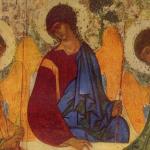Reviewing two new translations of the Iliad (by Peter Green and Barry Powell), Hayden Pelliccia explores some of the challenges of translating Homer.
It starts from the very beginning. Homer writes (in Greek word order): “Wrath sing, goddess, Peleus-son Achilles’, baneful, which hurled.” What’s an English translator to do?
Pelliccia summarizes the options: “The very first line of the Iliad forces any English-language translator to decide immediately and to declare conspicuously whether he would rather be caught betraying his poet or his own language. The opening word, mēnin, wrath, is the subject of the long poem that follows, but not of the long sentence it begins. This word order in the original creates a markedly stylized but not a strained effect. Poetic Greek can bring off putting the potent single thematic word first and then proceeding to other parts of the sentence, placed in an order that satisfies the demands of rhetoric and versification.”
Lattimore sticks with English word order, but “Powell and Green, unwilling to give up Homer’s effect, opt for the hiccup repetition that eliminates any ambiguity: ‘wrath, goddess, sing . . . wrath, which. . . .” Lattimore finessed the problem by exchanging the adjective opening line two (baneful) for a more mobile part of speech (devastation) to park the relative clause after: “and its devastation, which put. . . .”’
Textual variants create other problems. Within the proem, one ancient witness offers an alternate reading to the established texts. The “vulgate . . . tells us that the baneful wrath of Achilles, after sending the souls of many heroes to Hades, made of their bodies ‘takings for dogs and all birds.’ Three and a half centuries later, a single source reports that Aristarchus’s predecessor Zenodotus had read the word ‘banquet’ in the space occupied by ‘all’ in our standard text: ‘and made their bodies takings for dogs/and for birds a banquet.'”
It makes all sorts of sense, but Green sticks with the vulgate reading: “Green says what the dogs got was ‘carrion,’ which acceptably renders Greek heloria, literally, ‘takings,’ or ‘booty.’ When he completes ‘carrion for dogs’ with ‘and all birds of prey,’ however, he silently gives the lame ‘all birds’ some help by adding the helpful qualification ‘of prey,’ which is nowhere in the Greek.”
Green and Powell both perpetuate “a long-standing scholarly failure of nerve in a more economical fashion.”
Pelliccia isn’t being nit-picky. His review demonstrates the scale of the project of translating Homer’s epics. If the poet nods, then what can we expect of his translators?












